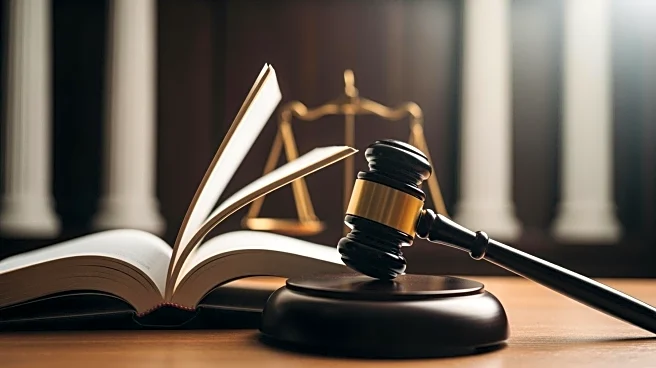What's Happening?
The US Supreme Court has rejected an appeal from Alex Jones, a right-wing conspiracy theorist, to overturn a $1.5 billion defamation judgment against him. This judgment was imposed due to Jones's false
claims that the 2012 Sandy Hook Elementary School shooting, which resulted in the deaths of 20 children and six educators, was a hoax. Jones had previously argued that the massacre was staged as part of a government plot to confiscate guns from Americans. During court proceedings in Texas, Jones admitted that the attack was '100% real.' His appeal to the Supreme Court was based on a free speech argument, claiming that he should have the same First Amendment protections as journalists. Jones also contended that the financial consequences of the judgment were excessively severe, describing it as a 'financial death penalty.'
Why It's Important?
The Supreme Court's decision to reject Alex Jones's appeal underscores the legal accountability for spreading false information and the limits of free speech protections under the First Amendment. This ruling is significant as it reinforces the consequences of defamation, particularly in cases involving sensitive and tragic events like the Sandy Hook shooting. The decision is a victory for the families affected by the tragedy, who have sought justice and accountability for the emotional distress caused by Jones's false claims. It also serves as a precedent for similar cases where misinformation and conspiracy theories have caused harm to individuals and communities.
What's Next?
With the Supreme Court's rejection of the appeal, Alex Jones faces the challenge of fulfilling the financial obligations imposed by the defamation judgment. His Infowars media company, which was previously put up for auction to pay the Sandy Hook families, may be sold again, potentially giving satirical news site The Onion another opportunity to purchase it. The legal pressure on Jones continues to mount, as the Sandy Hook families and their legal representatives remain committed to enforcing the jury's verdict and ensuring that Jones and Infowars are held accountable for their actions.
Beyond the Headlines
The case highlights the ethical and legal implications of spreading misinformation and conspiracy theories, particularly in the digital age where such content can reach millions. It raises questions about the balance between free speech and the responsibility of media figures to avoid causing harm through false narratives. The outcome of this case may influence future legal actions against individuals and organizations that propagate harmful misinformation.










